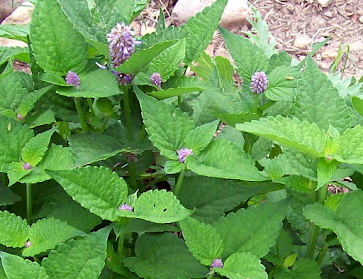7 Natural Home Remedies To Help You Quit Smoking
RELATED: 21 Deadly Health Effects of Alcohol: Short & Long Terms
Smoking and Oral Health
When you inhale cigarette smoke, toxins and chemicals pollute the mouth completely stripping it of all the vital nutrients that aid your mouth’s natural healing abilities. This leads to greater inflammation and hinders immune functionality, which prevents your body’s natural ability to heal infection.
Smoking also causes gums to become swollen and undernourished. This is because the nicotine in tobacco constricts blood vessels and reduces blood flow to your gums.
There are numerous studies to suggest that people who smoke are much more likely to develop gum disease and are prone to developing more serious gum issues that lead to tooth extraction as opposed to a non-smoker.
There is much debate as to whether vaping is as bad as smoking when it comes to your teeth and gums. But although the long term effects of e-cigarettes still aren’t well known, there is substantial evidence to suggest that vaping is extremely detrimental to your oral health and is certainly not a safe alternative.
7 Herbs to help you quit smoking
Quitting smoking isn’t an easy thing. Your body can go through some uncomfortable withdrawal symptoms, which can affect you physically and emotionally. But luckily, nature always lends a helping hand.
Natural Home Remedies To Help You Quit Smoking
If you’re thinking of quitting smoking then you may want to try out some of these handy herbs to help you along the way.
Catnip is one of the most popular herbs to ease withdrawal symptoms associated with smoking. It contains antibiotic and antispasmodic properties that may ease dry coughs, abdominal cramps, and headaches.
Catnip also helps with anxiety, irritability, and sleeplessness related to nicotine withdrawal.
Valerian is a powerful herb of choice when it comes to quitting smoking. It can relieve muscle tension, restlessness, insomnia, and feelings of anxiety and irritability. Check out our blog, “5 calming herbs to soothe anxiety,” for other herbal remedies to deal with symptoms of anxiety that may arise.
Oat straw/seed is a potent herb that helps to relieve feelings of stress, exhaustion, and nervousness which are commonly experienced when quitting smoking. ( OATS Why Overnight Oats are Good for You - 23 Health Benefits of Eating Oats Soaked Overnight)
GREEN TEA
One of the most common herbal remedies used to control cravings associated with smoking is green tea. As a powerful antioxidant, green tea helps restore the oxidant/antioxidant imbalance that smoking has disrupted, and aids the body during the detoxification period. The components of green tea are also said to help reduce the urge to smoke.
READ MORE: 6 Recovery Options For Alcohol Addiction
Korean Ginseng is one of the most popular herbs in the world for helping to relieve symptoms associated with smoking withdrawal. As a powerful adaptogen, this herb is most beneficial for helping the body deal with stress. Ginseng is especially helpful for soothing feelings of anxiety, relieving fatigue, and re-establishing balance in the body, which is needed for helping the body adjust to the absence of nicotine.
This potent herb is used worldwide to control nicotine cravings. It is one of the most well-known herbs for stabilizing moods and easing symptoms of depression. As a mild sedative, it helps to relieve nervousness and anxiety, making it a useful remedy for irritability and restlessness associated with quitting smoking.
Hyssop is a powerful decongestant and expectorant that helps clear lung mucus congestion that often results from smoking. This aromatic plant soothes and repairs irritated mucus membranes and is often used to treat respiratory ailments.
Usage:
Hyssop is best taken in tincture form or as a tea.
Get support
We know giving up smoking can be a difficult process, but it is the most beneficial thing you can do for your body, mind, and your wallet! As well as our listed herbs, you may want to consider joining a support group or working with a meditation teacher who can suggest breathing exercises and help you process emotions you may experience during the quitting process. There is a lot of help available so don’t be afraid to reach out.
“Quitting smoking can be a very good test of one’s character. Pass the test and you will have accomplished so much more than just get rid of one bad habit.”
— Abraham H. Maslow, an American psychologist
Stay safe !


















